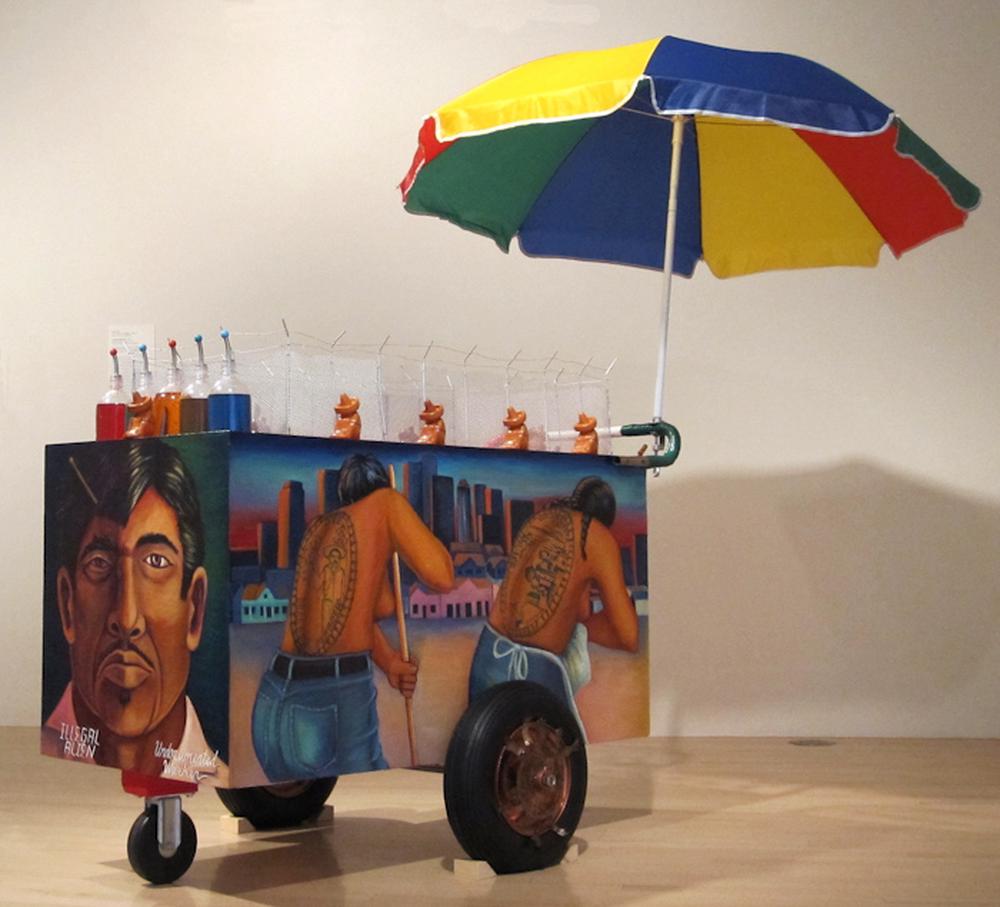Judy Baca. Mexican Labor in California

Raspados Mojados (1994) is a rare stand-alone sculpture among Judy Baca’s legacy of public works. She was born in Watts, a Black and Latinx neighborhood in South Central Los Angeles; one of her earliest memories is of her mother coming home from her job at a tire factory, her dress and hair saturated with the smell of rubber.1 The first in her family to go to college, Baca studied art and graduated from San Fernando Valley State College (now California State University, Northridge) in 1969. Baca said, “I stepped forth from the university. . . and tried to figure out how I was going to make my work relevant to the people I loved and cared about.”2 Her work became rooted in the ideals of social justice expressed in El Movimiento, the United Farm Workers union led by César Chávez, the women’s movement, and the issues facing her communities. Raspados Mojados, a repurposed street-vendor’s cart, addresses the histories of Mexican labor in California from the late 1880s to the present.
Pedro Pablo Celedón, “Judy Baca”, Voces Vivas (Los Angeles: Barefoot Productions, 2013), video, 3:54 minutes, available at bareprod.com/otw-portfolio/judy-baca/. ↩︎
Judy Baca, in an interview with Lynn Hershman Leeson, Catalina Island, CA, October 2, 1992, for Women Art Revolution, video, 49:18 minutes, available at exhibits.stanford.edu/women-art-revolution/catalog/mz831gp6549.. ↩︎